 Passover’s Message of Hope in the Aftermath of Oct. 7
Passover’s Message of Hope in the Aftermath of Oct. 7
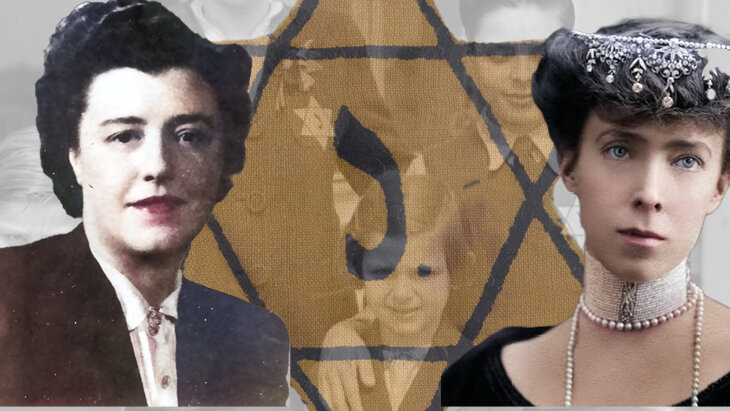

6 min read
When the lives of thousands of Jewish children were at stake, royalty came to their rescue.
At first glance, 40-year-old Belgian Yvonne Nèvejean did not appear to be a likely heroine, but when the lives of young children were at stake, she bravely rose to the occasion.
Knowledgeable, resourceful and dedicated to her job, she was the head of an organization called the National Agency for Children, operating a network of children's homes throughout Belgium.
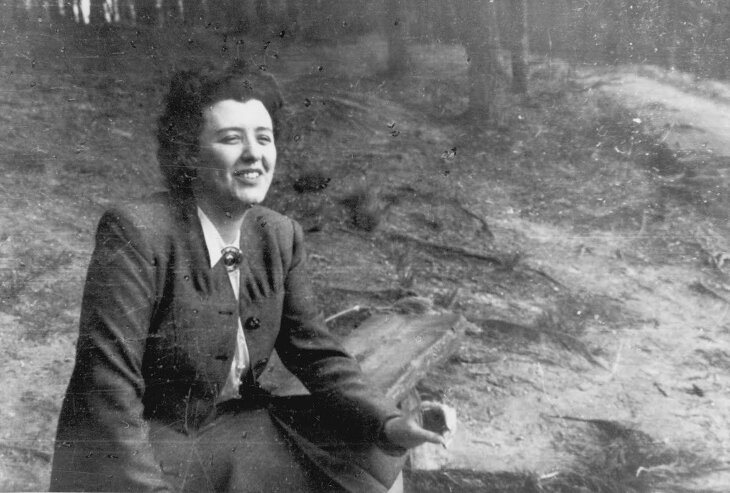
On May 10, 1940, her small neutral country was invaded by German forces who didn’t waste any time deporting the 66,000 Jews living there. Yvonne Nèvejean was then contacted by the Comite de Defense des Juifs en Belgique, Belgium's main Jewish underground organization. This group within the Belgian Resistance was founded by Jewish communist Hertz Jospa and his wife Hava Groisman (Yvonne Jospa) in September 1942. The CDJ had about 30 members in its children's section alone. Despite their differing political and religious views, they united for the vital task of saving Jewish children.
They asked Yvonne to rescue Jewish children who had been separated from their parents. Although aware it would be almost impossible to stop the Nazis, they felt they should at least try to save the children and give them a chance to survive.
Acting mainly on her own at first, Yvonne agreed to have her organization help place children with families and in institutions in order to protect them.
Thanks to Yvonne’s remarkably persuasive talents, the children’s agency became a vital center for helping endangered Jewish children to find secure hiding places.
Searching all likely and unlikely places, monasteries, orphanages and farms, she managed to successfully convince priests and nuns, Catholics and Protestants, even people classified as enemies of the state, to help in this crucial mission.
One little girl, five-year-old Bronia Veitch, was living in a Belgian home for Jewish refugee children. In the autumn of 1942, the Gestapo came to transport them to the Mechelen transit camp and certain death.
“The non-Jewish housekeeper at the home immediately telephoned Yvonne Nèvejean,” recalled Bronia many years later.
By a miracle, the train was unaccountably delayed. Seizing the opportunity, Yvonne immediately decided to transfer all the children to safe houses. But which person would be most likely to assist her at this crucial time?
She sought help from an unusual source, Elisabeth of Belgium, the former queen and queen mother of King Leopold III.
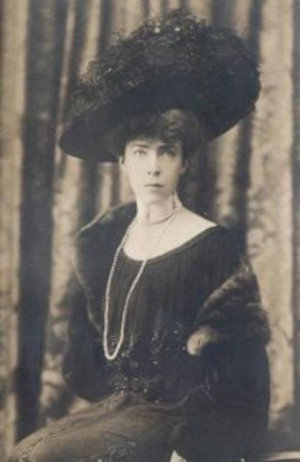
Elisabeth was exactly the right person needed. Although born to German royalty, she was a true humanitarian, always concerned for the welfare of others. During World War I, she opened a hospital for wounded soldiers and was known as the Nurse Queen. She was regarded as heroic by the Belgian people due to her courage, compassion and patriotism.
When Yvonne appealed to the kind-hearted queen, she was touched by the plight of the endangered Jewish children and used her influence with General Von Falkenhausen, the military governor of the German High Command. A huge ransom was also paid by a member of the Comite de defense des Juifs. Thankfully, the children were released during the night, only a brief time before the train departed for the transit camp.
In addition to accomplishing this remarkable feat, Yvonne also took an active role in raising the necessary funds for all the hidden children. Secretly she requested a monthly allowance from the management of the Societe Generale Bank to support her efforts. When the amount they contributed was still insufficient, she asked for assistance from the Belgian government-in-exile in London who succeeded to send her the additional funds.
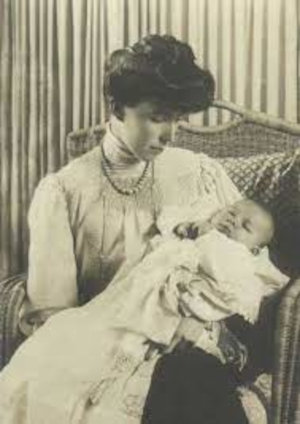 Queen Elisabeth
Queen Elisabeth
Yvonne depended on a large network of men and women in the Belgian underground movement to provide safe homes for Jewish children. The Sisters of Charity of Besançon were in charge of the Queen Elisabeth Home, situated in a castle under the sponsorship of the queen mother. Located in an isolated village, in 1941 the home was transformed into a center for disabled children.
Again, with the knowledge and support of sympathetic Queen Mother Elisabeth, the castle facility also served for several years as a refuge for Jewish children. They had been brought to the home through the efforts of Nevejean and one of her dependable collaborators, Father Joseph André. Despite the institutional setting, the children received loving care in the Queen Elisabeth Home.
Although Yvonne and her colleagues faced the constant risk of denunciation by Belgian collaborators, only a small number of rescuers and children were actually arrested by the Germans. The Gestapo offices in Brussels were aware of the existence of an extensive rescue network designed to save Jewish children but with only a few exceptions, failed to disrupt the efforts headed by Yvonne Nevejean.
In August 1944, although the defeat of the German Third Reich appeared to be imminent, some diehard Nazis in Brussels planned to capture the remainder of Belgium's Jews including children and send them to the concentration camps.
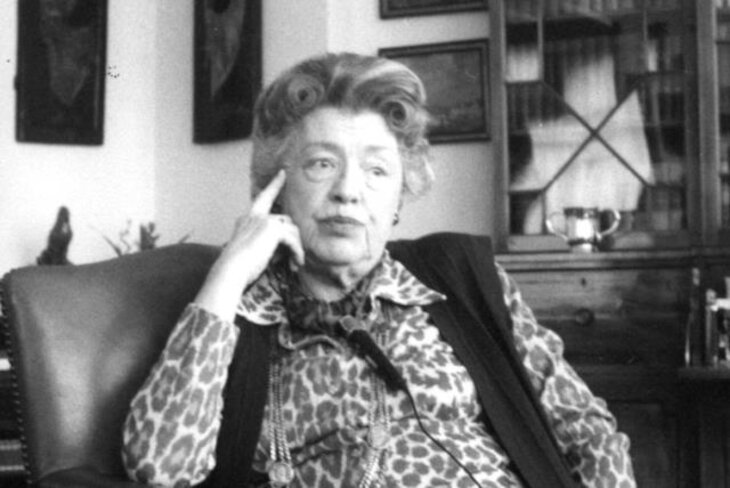 (photo credit: Yad Vashem)
(photo credit: Yad Vashem)
A desperate Jewish underground appealed to Yvonne to save more children. One member, Marie Blum-Albert recalled later, "I can never forget the determination, the diligence, the heart with which Madame Nevejean applied herself to this task."
Never giving up, Yvonne tirelessly telephoned convents, hostels, and homes for war orphans and prisoners' children, desperately pleading with them and other people of influence to obtain shelter for children in homes already severely overcrowded.
Through her firm determination, her final mission was successful. About 4000 young Jewish lives were saved by the bravery and compassion of Yvonne Nèvejean and her colleagues while during the same period 28,000 Jews from Belgium (44% of the total Jewish population) were killed in the Holocaust.
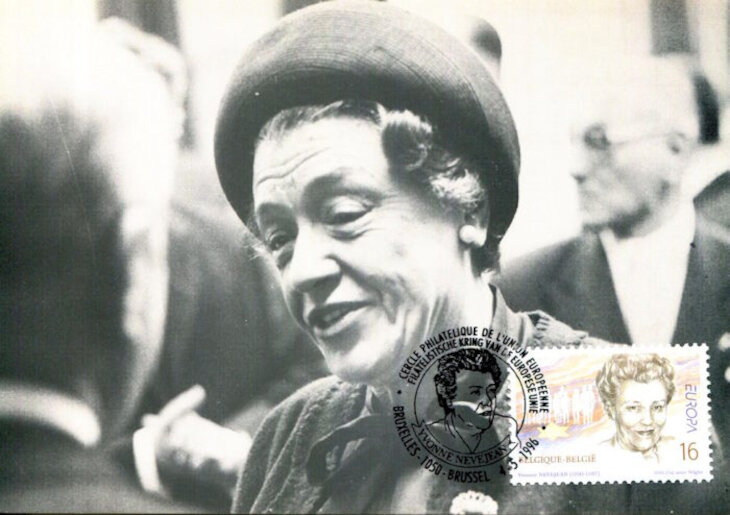
“Yvonne Nèvejean provided Jewish children with more than equality of opportunity: she gave them the gift of life,” wrote author Suzanne Vromen in her book Hidden Children of the Holocaust: Belgian Nuns and their Daring Rescue of Young Jews from the Nazis.
In 1965, Yvonne Nevejean was honored by Israel's Yad Vashem Holocaust Martyrs' and Heroes' Remembrance Authority, which named her one of the Righteous Among the Nations, the first Belgian woman to be so recognized. Queen Mother Elisabeth was similarly honored by Yad Vashem for her role in saving Jewish children.
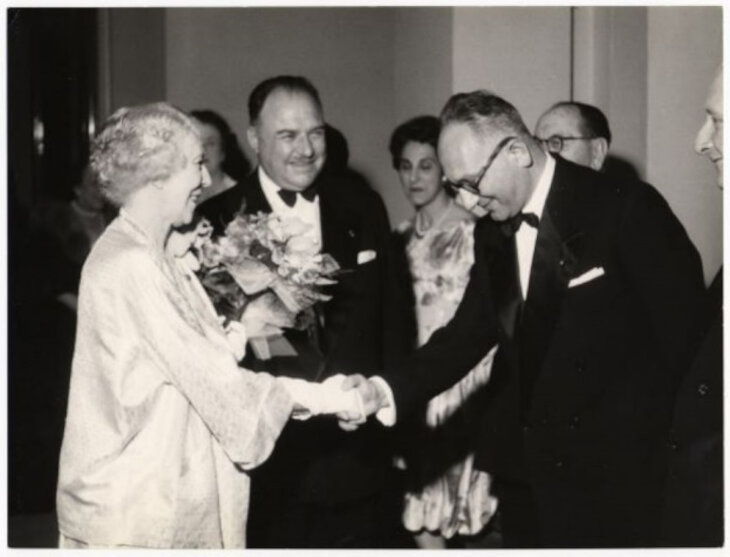 Belgian Jewish philosopher Chaim Perelman greeting Queen Mother Elisabeth in 1945
Belgian Jewish philosopher Chaim Perelman greeting Queen Mother Elisabeth in 1945
Like many other heroes of the Holocaust, Yvonne Nèvejean was rewarded with a long life, passing away at the age of 87 in 1987.
Yvonne Jospa, co-founder and leading organizer of the Belgian resistance who worked together with her namesake, praised Nèvejean as someone who felt very strongly about injustice and dedicated to the rescue of Jewish children.
In her eulogy for Yvonne, Jospa explained that “she was driven by her love for children, her antipathy towards any form of discrimination and being in defiance against the Nazi occupation.”
